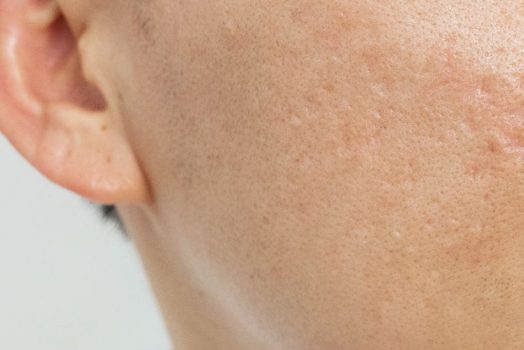
After undergoing effective acne treatment, it’s important to maintain the health of your skin to ensure the results last and prevent future breakouts. Proper skin care post-treatment can help minimize scarring, balance oil production, and protect your skin’s overall health. Here are some key steps to maintain your skin after successful acne treatment:
1. Continue With a Gentle Skincare Routine
One of the most important aspects of maintaining clear skin after acne treatment is a consistent, gentle skincare routine. Harsh products or aggressive exfoliation can irritate your skin, making it more prone to new breakouts.
- Cleanse: Use a mild, non-comedogenic cleanser that’s free of harsh chemicals or fragrances. Cleansing twice a day—morning and night—helps remove dirt, excess oil, and bacteria without stripping the skin’s natural moisture.
- Moisturize: Even if your skin feels oily, it still needs hydration. Opt for a lightweight, oil-free moisturizer to keep your skin balanced. Hydration helps repair the skin barrier, which may have been compromised during acne treatment.
- Sunscreen: Always apply a broad-spectrum sunscreen (SPF 30 or higher) every morning, even on cloudy days. Acne treatments can make your skin more sensitive to the sun, and unprotected exposure can lead to pigmentation and further damage.
2. Avoid Picking or Squeezing Pimples
It can be tempting to pick at any residual blemishes or scabs, but doing so can lead to scarring and inflammation, undoing the progress made during treatment. If you do experience new breakouts, resist the urge to pop them. Instead, treat the area with a spot treatment or consult with your dermatologist for advice.
3. Stick to Non-Comedogenic Products
After acne treatment, it’s essential to choose products that are non-comedogenic, meaning they won’t clog pores. This includes makeup, sunscreen, and skincare products. Opt for lightweight, water-based products that allow your skin to breathe.
- Foundation & Makeup: If you wear makeup, use non-comedogenic foundations and powders. Always make sure to remove makeup thoroughly at the end of the day to avoid clogged pores.
- Hair Products: Avoid hair products that contain oils, silicones, or fragrances, as these can transfer onto your skin and clog pores, especially if your hair comes into contact with your face.
4. Exfoliate Carefully
While exfoliating can help maintain smooth skin and remove dead skin cells, over-exfoliation can irritate the skin, particularly after acne treatment. Use gentle exfoliating products, such as a mild chemical exfoliant with AHAs (alpha hydroxy acids) or BHAs (beta hydroxy acids), no more than 2-3 times per week. These help to keep pores clear without causing irritation or dryness.
5. Maintain a Healthy Diet and Lifestyle
What you put into your body can impact the health of your skin. A balanced diet rich in vitamins, minerals, and antioxidants helps support skin healing and overall health. Focus on:
- Hydration: Drink plenty of water throughout the day to keep your skin hydrated from the inside.
- Anti-inflammatory Foods: Include foods like fruits, vegetables, and healthy fats (such as those from avocados and nuts) to reduce inflammation and support skin recovery.
- Limit Sugar & Dairy: Some studies suggest that high-glycemic foods (such as refined sugars and dairy) may trigger acne. While it’s not the same for everyone, moderating your intake of these items may benefit your skin.
- Exercise: Regular exercise can boost circulation and help maintain healthy skin. Just be sure to cleanse your face after sweating to remove any bacteria and oils.
6. Be Patient with Your Skin
Maintaining clear skin requires patience. Even after acne treatment, your skin may still take some time to adjust. You may experience slight breakouts as your skin recovers or after transitioning to new skincare products. If these breakouts are persistent or severe, consult your dermatologist for personalized advice.
7. Stay Consistent with Follow-Up Appointments
If you had professional acne treatments, such as chemical peels or laser therapy, it’s important to stick with your follow-up appointments. These treatments can provide ongoing support for your skin and ensure that any future breakouts are kept under control.
Conclusion
Maintaining your skin after acne treatment is essential to keep your complexion clear, healthy, and glowing. By following a consistent skincare routine, using non-comedogenic products, maintaining a balanced diet, and staying patient, you can enjoy long-term results. Always remember to consult with a dermatologist if you experience any persistent issues or need personalized recommendations for your skin type. learn more here – https://selflondon.com/medical-dermatology/acne-treatments/